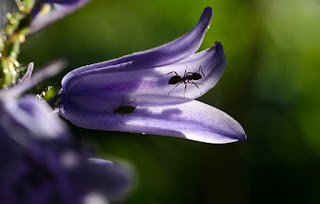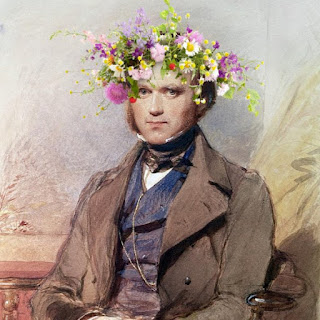Flowers and Ants Stymie Evolutionists
Sometimes people knock ants off flowers because they think they are intrusive. But that is like bursting into the home of someone and chasing out visitors, only to learn that the visitors were invited guests. Many times, ants and flowers have a mutually-beneficial relationship: Plants provide shelter and nutrients, ants disperse seeds and help defend the plants. Besides, ants like to climb things. Charlie Darwin and his followers have long insisted that flowers and plants evolved together, but they have no evidence.
 |
| Flower with ants, Pixabay / wal_172619 |
When checking the fossil record, ants have always been ants. Sorry, Charlie, no transitional forms or signs of a common ancestor. Biblical kinds of ants are found (kinds are close to the family classification in biology), but secularists will not consider that.
 |
| I gave Chuck a floral wreath at PhotoFunia |
The theory of evolution states that long ago, when flowering plants spread out from ancient forests, the ants followed, initiating the evolution of the many thousands of ant species found today.
Evolutionists maintain that “ants and plants have been evolving together over the past 60 million years.”1 But according to the fossil record, plants have always been plants, and ants have always been ants. In addition, there is no evidence that they have been “evolving together,” and the Earth is not nearly that old.
To read the rest, visit "Ants, Flowers, and Time."